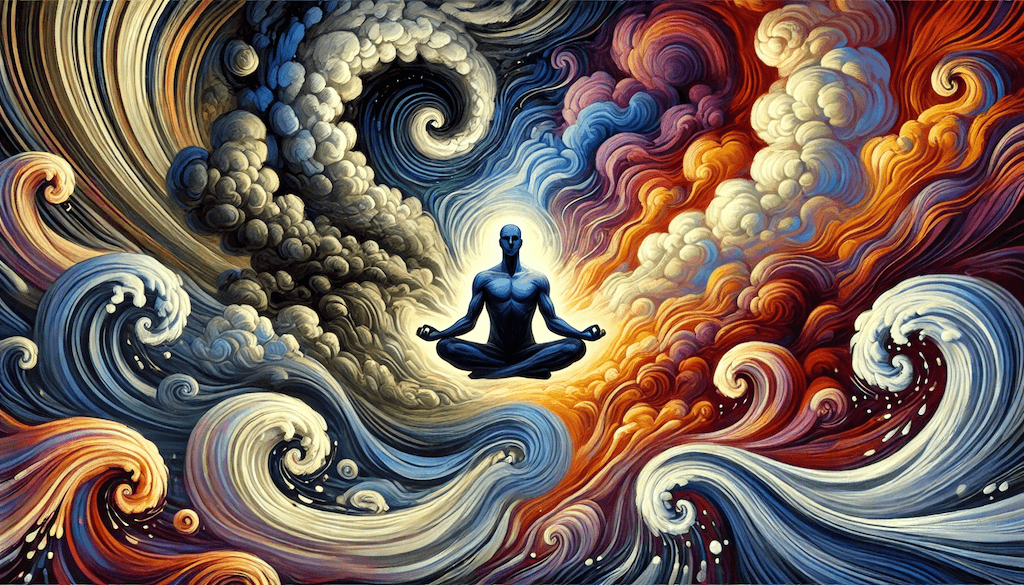Why We All Secretly Love Chaos: The Stoic's Hidden Truth

Let’s face it: chaos is everywhere. It’s in the news, in our social media feeds, in the economy, and even in our daily lives. We talk about wanting peace and order, yet when chaos strikes, we’re glued to our screens, captivated by the drama and uncertainty. But have you ever wondered why we are so inexplicably drawn to chaos? Could it be that we secretly love it?
The Strange Allure of Chaos
Think about the last time something completely unexpected happened in your life. Maybe it was a job loss, a sudden breakup, or even a global pandemic. Amidst the stress and anxiety, there was likely a part of you that felt oddly alive, energized by the unpredictability of it all. This isn’t a fluke—it’s human nature.
Chaos disrupts our routine, forcing us to confront the unknown. It challenges our sense of control and compels us to adapt, grow, and evolve. This is why chaos, despite its reputation as a destructive force, is also a catalyst for creativity and innovation. When the old ways no longer work, we are pushed to think outside the box and find new solutions. In many ways, chaos is a necessary ingredient for progress.
The Stoic Perspective on Chaos
The Stoics, ancient philosophers who sought tranquility amidst the turmoil of life, understood this paradox well. They didn’t just accept chaos—they embraced it. For the Stoics, chaos was a part of the natural order, a force that could neither be controlled nor avoided. Instead of resisting it, they focused on how they could respond to it with wisdom and virtue.
“The obstacle is the way,” said Marcus Aurelius, the Roman emperor and Stoic philosopher. To the Stoics, every challenge, every chaotic event, was an opportunity for growth. Chaos wasn’t something to be feared, but a chance to practice resilience, patience, and adaptability.
Why We’re Addicted to Chaos
So, why are we so hooked on chaos? The answer lies in our brain chemistry. When we encounter uncertainty or unpredictability, our brains release dopamine, the chemical associated with pleasure and reward. This dopamine rush makes chaos thrilling and, at times, addictive. It’s why we can’t resist checking our phones during a crisis or why we binge-watch shows that keep us on the edge of our seats.
But there’s more to it than just brain chemistry. Chaos also appeals to our need for meaning and purpose. When life is too predictable, we start to feel stagnant, as if we’re just going through the motions. Chaos shakes things up, forcing us to reassess our priorities and rediscover what truly matters. It’s in these moments of upheaval that we find clarity, purpose, and a renewed sense of direction.
Embracing the Chaos
Here’s the kicker: while we might be drawn to chaos, it doesn’t mean we have to be consumed by it. The Stoics teach us that while we can’t control the chaos around us, we can control how we respond to it. This is where the real power lies.
By adopting a Stoic mindset, we can navigate the chaos of modern life with grace and resilience. Instead of getting swept away by the storm, we can stand firm, anchored by our values and principles. We can find peace in the midst of turmoil, knowing that chaos is not our enemy, but a teacher guiding us toward growth.
So, the next time you find yourself in the middle of a chaotic situation, don’t run from it. Embrace it. See it as an opportunity to learn, adapt, and become stronger. Remember, chaos isn’t just a force of destruction—it’s also a force of creation. And in the end, it’s the chaos that makes life truly worth living.
Embrace the chaos, and let it lead you to new heights.